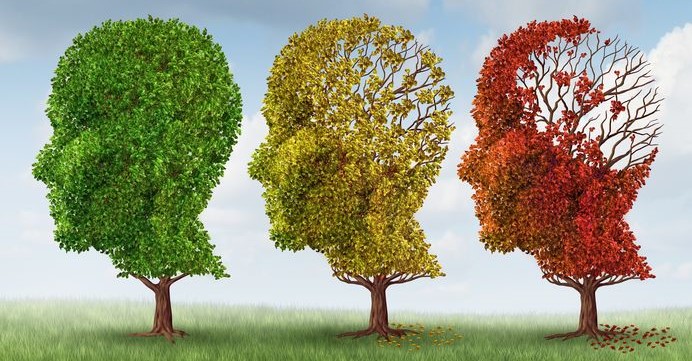Argentum and MatrixCare engaged a global research firm, Cognitive Solutions, to tells us what is new and working in residential memory care.
By Pam McDonald
What’s really new . . . and actually working . . . in residential memory care? That was the question Argentum and MatrixCare engaged a global research firm, Cognitive Solutions LLC, to answer.
Recognizing that residents with cognitive impairments are the fastest growing population in senior living, the organizations wanted a study to identify innovations in memory care that were backed up with research.
While a comprehensive White Paper is being finalized (expected to be completed in fall), a sneak peek of the results was presented at the Argentum Conference in May. Chief Clinical Officer of MatrixCare Denise Wassenaar introduced Cognitive Solutions’ CEO Mike Splaine, and Researcher, Educator and Consultant Jennifer Carson, Ph. D., who previewed their findings.
Methodology
Mike and Jennifer explained that they began with a review of published literature, conducted online surveys, and solicited “nominations” from Argentum members. They were looking for innovations that helped memory care residents have their best lives.
For them, “innovation” meant new and edgy or experimental. And, while they gave preference to programs that produced research results, they acknowledged that new undertakings might not have much evidence yet. So they looked for “evidence-informed” projects.
They received 233 program submissions and selected 50 that were then reviewed by Argentum’s Memory Care Roundtable. They first grouped the programs into the following operational categories:
-
Programming
-
Technology
-
Dining
-
Environmental Design
-
Education and Training.
Then nominees were further sorted as being one of the following:
-
Incremental – that is, competitive with existing practices
-
Breakthrough – having value propositions or elements attractive to new markets
-
Transformational – ideas that could change the memory care world
The Sneak Peek
The following innovations will be detailed in the White Paper.
Programming
-
-
A multi-sensory, hands-on and musically enhanced museum tour for those in early stages of dementia and their families. Inspired by “Meet-at-MOMA,” this program is designed for reflection and engagement.
-
-
-
A partially scripted improv theater program for those with cognitive impairment that serves as an alternative to pharmacological interventions.
-
Technology
-
-
A modular assistance system that aims to compensate for elderly persons’ declining physical and cognitive capabilities by allowing them to navigate neighborhoods with some protection against becoming lost.
-
-
-
An art-based tablet application for viewing and reflecting on art; an evocative discussion starter.
-
Dining
-
-
A cookbook that celebrates the dignity of older people, people with dementia, and those with eating disabilities by offering nutritious food across a range of dietary needs and, according to the author, Australia’s leading aged care chef, “letting the ‘flavours do the talking’.”
-
-
-
An award-winning “Brain Healthy” cooking program, largely based on the popular and well-researched Mediterranean Diet.
-
Environmental and Design
-
-
Intergenerational living where artist-in-residence music students receive complimentary housing at a retirement community in exchange for performing and engaging with residents. Evidence indicates that it offers improvement in security, use of formerly unused space, reduction of social isolation, and stimulation of interest in careers in aging and residential care.
-
-
-
A dementia facility design that helps erase the “invisible boundary” between communities and their local neighborhoods by integrating semi-public spaces where social functions and activities can be hosted. Spaces feature art installations with sensory elements as the vehicle to connect those inside and outside, since art is mainly perceived through emotive, rather than cognitive, means.
-
Education and Training
-
-
A comprehensive dementia-care philosophy and training program that builds on the belief that there is no one answer when it comes to supporting an individual whose life experience is changing because of dementia.
-
-
-
A “mindfulness” training program in dementia care that benefits both residents and care partners by reducing stress, enabling choice, and enhancing self-compassion.
-
Transformational
-
-
Facility design using cutting-edge science in sound and light engineering to compensate for the perceptual changes in hearing and eyesight among those with cognitive disorders.
-
-
-
The Honeywell Ibasho House, which was built after the 2011 massive earthquake and tsunami that killed over 18,000 people and displaced more than 65,000 in northern Japan. It is a partnership among the community of Ofunato, Japan, Ibasho, Operation USA, and Honeywell, in an effort to capture the strong desire of survivors to contribute to the rebuilding of their communities. It is also meant to reflect the spirit of the many survivor stories about elders who saved people’s lives by guiding them to higher ground and teaching them how to survive with extremely limited resources. These narratives transform perceptions of seniors from burdens to contributing members of the society. Ibasho, which in Japanese means a place where one can feel at home and be oneself, will benefit not only the elderly survivors of this disaster, but the respect and dignity of elders in our society as the world faces a global aging phenomenon.
-
A 12-apartment unit within a residential community dedicated to those with young onset dementia – typically people age 45-55. The program will be included in the White Paper upon verification from the senior living corporation that it has been implemented.
-








